An editorial published on Saturday, August 20 in the Iran newspaper shed light on a brief, unannounced visit by the Turkish foreign minister Mevlüt Çavuşoğlu to Tehran last Thursday evening, reporting that that the Turkish minister’s visit was a prelude to the start of a strategic alliance, marking a radical change in Ankara’s stance on the Syrian file.
Another article in the same newspaper focused on the link between electoral votes for President Rouhani and other ‘moderate’ candidates in the Iranian election and socioeconomic class. The same article also enquired how it might be possible for the country to be experiencing economic growth – as Rouhani recently announced – without this growth leading to the creation of new jobs, as well as asking how such growth could affect Iran’s economic future in the short-term.
Another subject of much discussion in the Iranian press is the recent statement by General Mohammed Ali Falaki, the head of Iran’s military forces in Syria, revealing that the regime is forming a new militia to be led by Major-General Qassim Soleimani, the commander of the regime’s Islamic Revolutionary Guards Corps’ (IRGC) Quds Force
There’s also been widespread media speculation concerning defense minister Hossein Dehghan,’s defense of the regime’s decision to allow Russia to use the Iranian Air Force’s Hamadan airbase. Other major news stories in Iranian media include the arrest of 63 young men and women at two concerts in Shiraz for attending mixed-sex events, and a call by Rouhani’s deputy, Vice President Shahindokht Molaverdi, for massive foreign investment in the country.
![]()
“Çavuşoğlu suddenly in Tehran”
Iran newspaper shed light on a brief, unannounced visit by the Turkish foreign minister to Tehran last Thursday evening. According to the editorial, the sudden appearance of the Turkish Foreign Minister took media by surprise, with Turkish CNN announcing that he returned to Ankara the same night.
The visit was confirmed by Bahram Ghasemi, official spokesman for the Iranian Foreign Ministry. He said that the topics discussed during the visit revolved around the Syrian issue. This statement was supported by Çavuşoğlu, who asserted that it is essential to move swiftly to eliminate terrorism in the region and to rapidly resolve the Syrian crisis that is worsening as time passes.
During the visit, Çavuşoğlu also talked to Iranian officials about the issues of Yemen, Iraq, and terrorist groups, including the Kurdish Democratic Party of Iran (KDPI), which is carrying out armed operations inside Iranian territories, and the PKK that has been launching guerrilla warfare for years in Turkish territories. The visit reflected the radical change in the Turkish position on the Syrian crisis as a result of the terrorist attacks that Turkey has suffered, with reports suggesting this is the beginning of a strategic alliance with Iran against the Kurdish separatist movements in both countries, which will drastically change the map of alliances in the Middle East. The editorial suggested that Bashar al-Assad will be the big winner of these alliances, adding that the Syrian opposition did not move fast to take action on the ground, with the complete absence of American support, meaning that the whole Syrian issue was handed over to Russia that will be the major player in this crisis.
Etemad newspaper: “The problem of economic growth without jobs”
Etemad newspaper handled the recent economic growth in Iran reported by President Hassan Rouhani, which would undoubtedly; reflect the creation of new job opportunities in Iran.
The paper says the announcement by President Rouhani of Iran’s positive economic growth rate in the past four months has given rise to heated debate in Iranian economic circles, mostly about how there could be a rise in the rates of growth without creating job opportunities. This has led to widespread skepticism among the Iranian public about the credibility of the statistics cited by Rouhani. Nevertheless, no official document has been released to confirm uncertainty of Rouhani’s claims that cannot be rejected based on opinions only.
Recent World Bank reports and other international institutions have observed that the economic growth seen in Iran is not associated with an increase in employment rates as a result of the regime’s failure to take advantage of the real potential of the Iranian economy. Experts warn that economic growth without productive economic activities does not lead to job creation and will not increase levels of public wellbeing. In order to attain a decent level of economic growth which could have a positive impact, analysts say “Iran’s banking system would have to undergo major structural reforms.”
Under the current system according to official statistics, most of the Iranian banks’ investments are going into commercial activities rather than industry and manufacturing, leading to an increasingly stagnant unproductive economy. The author further noted that this situation is not new, but has been the basis of the Iranian banking system for the past century.
The rest of bank profits are invested in the luxury market ignoring essential areas like the housing sector and thus, leading to stagnation in this sector. The editorial continued, “The Central Bank could resolve this by pressurizing the country’s banks to sell their assets and increase the available resources which could then be directed into more productive sectors.”
The second recommendation for economic reform would be an overhaul of Iran’s tax system by combating tax evasion and abolishing exemptions for sovereign institutions such as the army, the Islamic Revolutionary Guards Corps, and other state-owned revolutionary organizations. Indeed, the editorial concluded, the Iranian economic crisis is ultimately caused by the government’s mismanagement of the economy as well as by the state of dual sovereignty between the government and its revolutionary organizations.
Resalat Newspaper: “Middle and non-middle classes”
Resalat newspaper discusses the impact of the differences between social classes in the city of Tehran over elections and political activities. The editorial states that the discrepancy between Tehran’s middle class and other classes is a clear indication of an apparent shift in the most important areas of political rivalry in Iran, which has overshadowed the political debates on the threshold of the next presidential elections in 2017. The article also said that issues of the nuclear deal, oil, as well as economic crises involve the anti-democracy political elite in Tehran. This ideology prevailed in Iran in 2009 [a reference to the ‘Green Movement’ uprising of that year]. Those events witnessed violence and bloodshed for the sake of preventing former president Mahmoud Ahmadinejad from winning a second term, who is now welcome by the non-middle class masses on his visits to towns and villages across Iran.
Resalat reflected its customary conservative editorial line: ridiculing reformists’ efforts to divide the Iranian society by social classes, and that the middle class should lead the Iranian political life. The editorial wonders, “Is that real democracy they are selling?” The editorial contrasted this point with the enthusiastic welcome received by former president Mahmoud Ahmadinejad during his recent visit to towns and villages in remote parts of Iran.
![]()
♦ Fox News: 80,000 Shiite militiamen operating under Iran’s command in Iraq
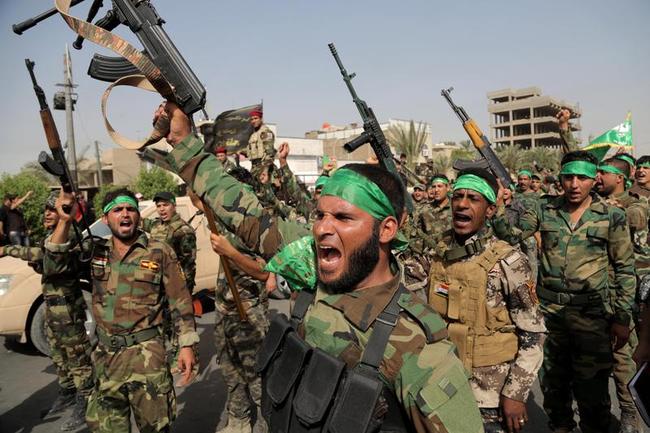
American television channel Fox News quoted a US military spokesman in Iraq who stated that of the 100,000 Shia militiamen involved in military confrontations in Iraq, four-fifths of this number – 80,000 – are under Iranian command. The US military spokesman said that this has raised concern among US officials at the resulting potential for future sectarian violence following the defeat of Daesh, with Washington worried that other anti-American groups will take the place of Daesh in provoking disputes and sectarian violence.
At the same time Muhammad Ali Falaki, the commander of IRGC forces in Syria, announced the formation of another army, the ‘Shiite Liberation Army’, to be led by Qassem Soleimani, adding that the Shiite Liberation Army is already participating in the regional war on three fronts, in Syria, Iraq, and Yemen.
This statement marks a change from Iran’s usual denial of its military presence and participation in the ongoing wars in the three countries.
Source: Radio Farda
♦ IRGC Commander announces ‘Shiite Liberation Army’, to be led by Qassem Soleimani

Speaking to Mashreq News, General Falaki thanked Iran’s Afghan militias for their leading role in fighting with the IRGC in the war in Syria. Speaking about the formation of Iran’s new ‘Shiite Liberation Army’, the senior regime military official said that the troops needn’t be exclusively Iranian and if necessary will also be recruited from the local populations in the three countries. General Falaki further claimed that the new military force aims to wipe out Israel within 23 years.
Source: Mashreq News
♦ 63 girls and young men arrested at two concerts in north Shiraz

The commander of Iran’s security forces in Shiraz, Yusuf Malek Zadeh, announced the arrest of 63 girls and young men at two concerts in the north of the city, stating that the security forces arrested the youngsters in a joint operation due to the young people’s revealing clothing.
Source: Zamaneh Radio website
♦ Iran ready to increase gas exports to Turkey
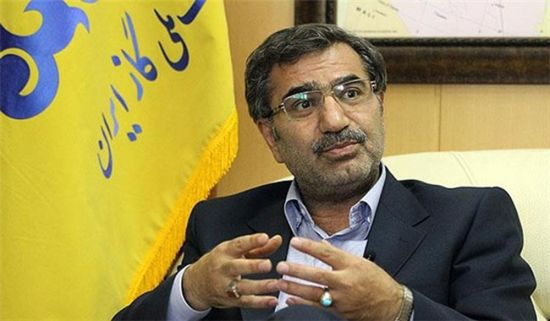
Deputy Iranian Oil Minister, Hamid Reza Iraqi revealed that Iran is ready to increase gas exports to Turkey by 6 million cubic meters per day. He explained that according to an agreement signed recently between Iran and Turkey, 30 million cubic meters of gas will be exported to Turkey, adding that Iran could raise the export volume by 6 million cubic meters through a new agreement.
Source: Mehr
♦ Assistant Health Minister: Rising inequality a social problem
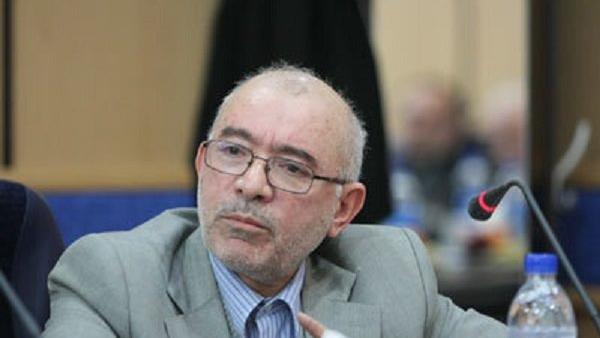
Iranian Assistant Minister of Health, Ali Akbar Sayari, said that hidden inequality is increasing in Iranian society, stressing the need to confront such harmful phenomena by targeting the roots of this problem like divorce and poverty. He added that 30 percent of Iran’s population is starving, a statistic confirmed by the Social Welfare Ministry. Sayari also said that 700,000 people in Iran are bankrupted annually by the cost of medical treatment, as well as stating that there are currently 350,000 drug addicts in Iran, although this figure differs from the Ministry of Health’s own official figure.
Source: Mehr News agency
♦ Molaverdi: Iran needs $200 billion in foreign investment
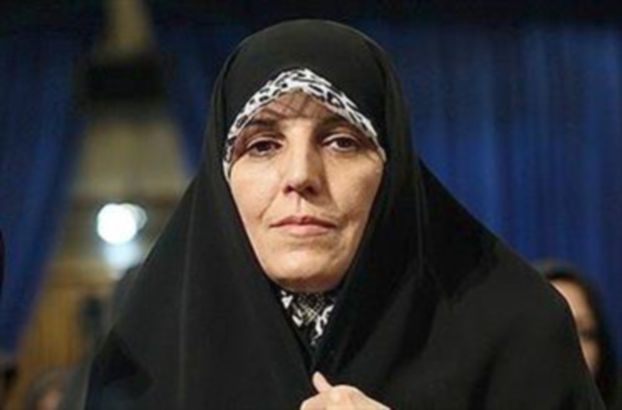
Shahindokht Molaverdi, Iran’s Vice President of Iran for Women’s and Family Affairs, said that the problems facing the government make it imperative to escape the current economic recession, adding that this is one of the primary priorities of President Rouhani’s government. The minister pointed out that the current government had begun its work under difficult conditions imposed by economic sanctions on the one hand coupled with low oil income on the other, as well as dealing with rates of inflation which exceeded 40 percent.
Ms. Molaverdi hailed the nuclear deal with the US, describing it as a victory for both parties and stating that it had been achieved against the wishes of Israel. She confirmed, however, that Iran still requires foreign investment totaling US $200 billion to create jobs and guarantee economic prosperity.
Source: Tejarat newspaper
♦ An explosion in an ice factory in Al-Ahwaz
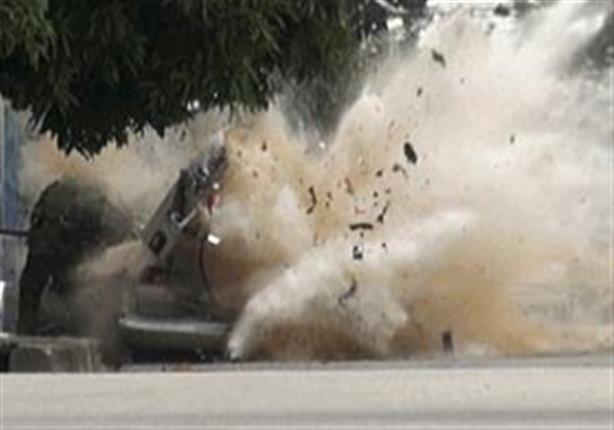
The executive director of the fire and safety services in Ahwaz, Amir Najafi, announced that an explosion took place on Friday night in an ice factory in Ahwaz. He added that the fire brigade rushed immediately to the scene of the explosion, with wreckage from machinery and equipment strewn in the streets around the factory.
Najafi said that there were thankfully no casualties, although he warned that high levels of toxic ammonia gas used in the ice-making process were registered in the surrounding area following the blast, adding that it’s possible that nearby residents might suffer breathing difficulties as a result.
Source: Mehr News Agency
♦ Dehghan: Iran refuses S-400, Antey-2500 missile systems instead of S-300 system
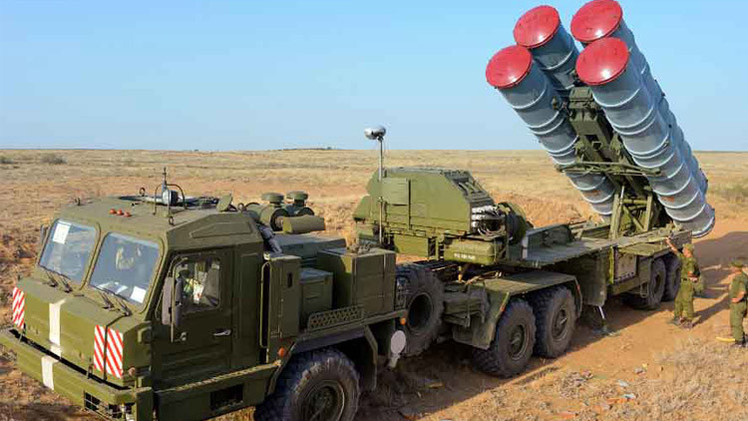
Iran’s Defence Minister, Brigadier General Hossein Dehghan, said during a press conference held at the Ministry of Defense headquarters in Tehran that the most important issue currently under discussion at the highest political level between Iran and Russia is the subject of the S-300 missile defense system.
The minister asserted that if Russia continued to evade its commitments under the agreement with Iran, Iran would have the right to lodge a complaint. Dehghan claimed that Russia had wanted to deliver the S-400 air defense system together with an Antey-2500 anti-ballistic missile system rather than the S-300 system, but said that Iran had refused to accept this. He indicated that the main part of the S-300 system had now been delivered and the remaining part will be delivered within the next month.
Dehghan said that Iran’s relationship with Russia is on a positive path of advancement at the level of strategic cooperation, with the hosting of Russian warplanes at Iran’s Hamadan airbase being part of this collaborative effort, which he said also came at the request of the Syrian government and as part of bilateral cooperation between the two countries.
The minister stressed that the deployment of Russian aircraft to an Iranian airbase has nothing to do with the Shura Council because Tehran was not formally providing Russia with any base. He added that it would be sheer ignorance to infer that the government had granted an Iranian airbase to Russia since doing so would be contrary to the Iranian constitution. Dehghan added that the aircraft had been deployed to the airbase in accordance with government decrees and the instructions of the Supreme Council for National Security.
The defense minister further alleged that Turkey has been transformed into a base of support for Daesh, claiming that Turkish efforts in this regard had been in vain and had only jeopardized Turkey’s security. He further added that the Turkish government had reached its current state due to its anti-Islamic policies. Dehghan said that Daesh was now gasping for breath, adding that the world would soon see the fruits of Iran’s and Russia’s actions in Syria and that his country is keen that others should worry about Iran’s missiles. “There are no limits to the range of our missiles, their destructive power and the accuracy of their targeting and nobody can impose boundaries on us,” he concluded.
Source: Fars News agency
